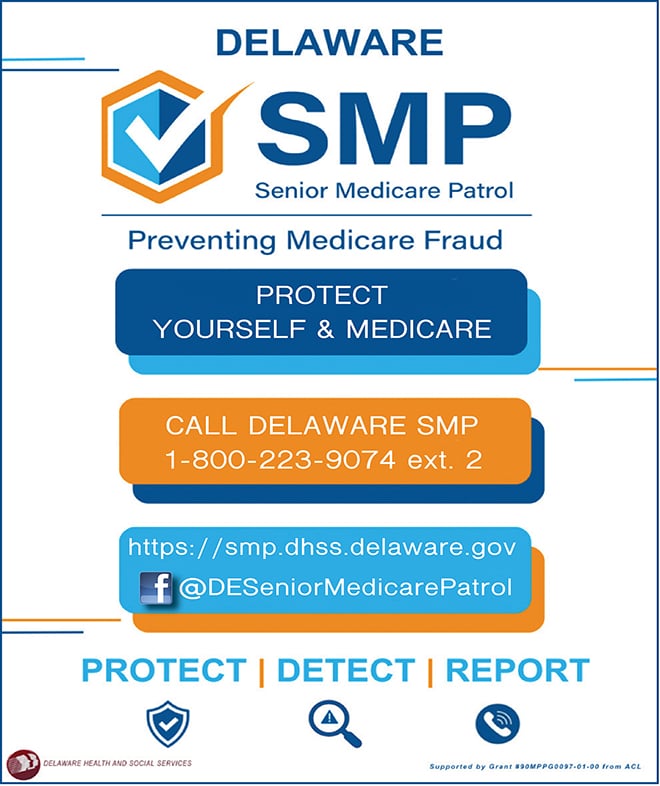Why Is Stopping Medicare Fraud Important?

By Vicki Crockett
Medicare loses an estimated $60 billion each year due to fraud, errors, and abuse, though that number is impossible to measure. Every day, issues related to these problems affect people across the country, often costing them time, money, and well-being. Medicare-related errors contribute to this annual loss even though errors can be honest health care billing mistakes. However, repeated errors by a doctor or provider could be considered a red flag of potential fraud or abuse if not corrected.
When people steal from Medicare, it hurts us all and is big business for criminals. Some common examples of fraud, errors, or abuse could include:
- Charging for services or supplies that were not provided
- Misrepresenting a diagnosis, a person’s identity, the service provided, or other facts to justify payment
- Prescribing or providing excessive or unnecessary tests and services
Falling prey to consumer scams or health care fraud may mean that your Medicare number has been “compromised” as a result of medical identity theft. Stealing from Medicare leaves less available funds for those needing services now as well as those needing Medicare in the future.
If you are a Medicare beneficiary, start the week by learning how to read your Medicare statements! Read your Medicare Summary Notice (MSN) or Explanation of Benefits (EOB) in the paper form that is mailed to you or go online to Medicare.gov and review claims digitally.
Remember the three steps from the SMP: Prevent, Detect, Report!
Prevent
Learn how to read your MSN by watching this video https://www.youtube.com/watch?v=08lRvtemRGs&t=7sYou can also call your SMP (800-223-9074 ext. 2) or go to their website (https://smp.dhss.delaware.gov/) to learn how to best protect yourself and your loved ones from health care fraud, errors, or abuse.
Detect
When reviewing your MSN or EOB, look for services, products, or equipment you didn’t receive, double charges, or items your doctor didn’t order.
- Request and use a My Health Care Tracker https://smpresource.org/you-can-help/my-health-care-tracker/from your SMP to compare appointment information you recorded with what is printed in your MSNs and/or EOBs.
- If you find items of concern, call the doctor or company in question and ask them about potential mistakes. Call your insurance company if you still have questions.
Report
Call or email your local SMP if you believe that you have experienced health care fraud, errors, or abuse or if you would like to request a My Health Care Tracker.
Caregivers, help by educating yourself and your clients or loved ones on how to prevent and detect health care fraud, errors, and abuse. Be on the lookout for things like boxes of knee braces (known as durable medical equipment, or DME) lying around the house. This is a common scam and may mean your client or loved one has been a victim. Remind your clients or loved ones to never give out their Medicare number or other personal information over the phone.
Families, help by talking to your loved ones about protecting their Medicare number just as they would a credit card number. Encourage them to check their Medicare statements for fraud, errors, or abuse and never give out their Medicare number over the phone for any reason. Help your loved ones create a Medicare.gov account to access their Medicare claims online or remind them to open and review their statements when they come in the mail every three months. You can also register their phone number on “do not call” lists and go to optoutprescreen.com to opt out of marketing mailings.
Partners and professionals, help by sharing SMP information on social media, referring clients and consumers to the SMP, and inviting the SMP to speak during a shared event. Identify ways to collaborate on mission-related topics and information.
Health care providers, help by talking to patients about health care-related scams such as those related to durable medical equipment, genetic testing, or new, plastic, or chipped Medicare cards. Reassure them that your office and their other doctors’ offices are not going to call to offer them services or equipment. Teach them that products and services should only be ordered by doctors they regularly see, like you, and that needed medical items should never be ordered through TV ads or unsolicited calls.
302-255-9774
Follow on facebook @DESeniorMedicarePatrol
and instagram @deldhss





